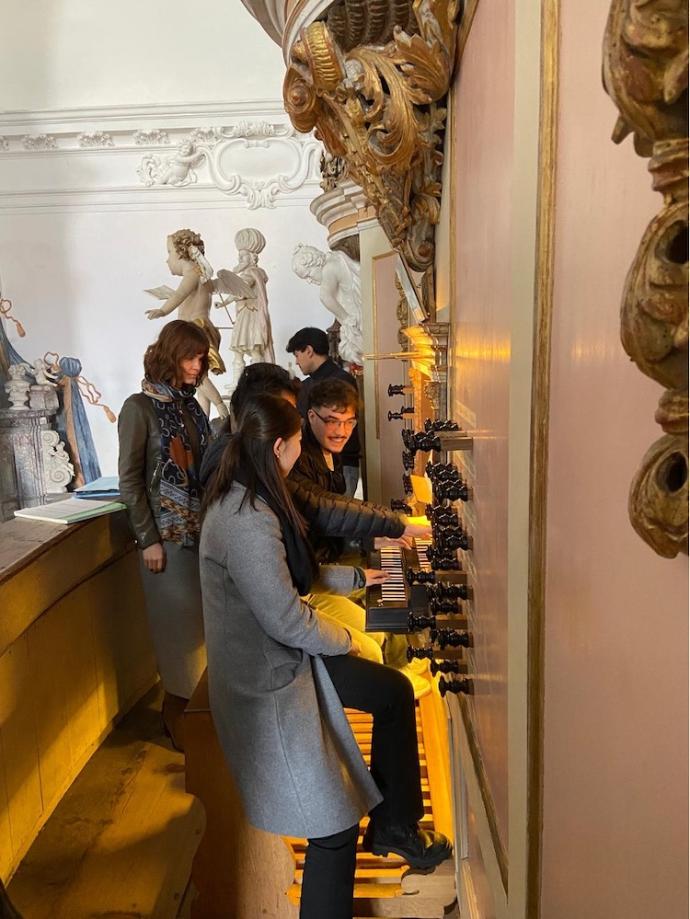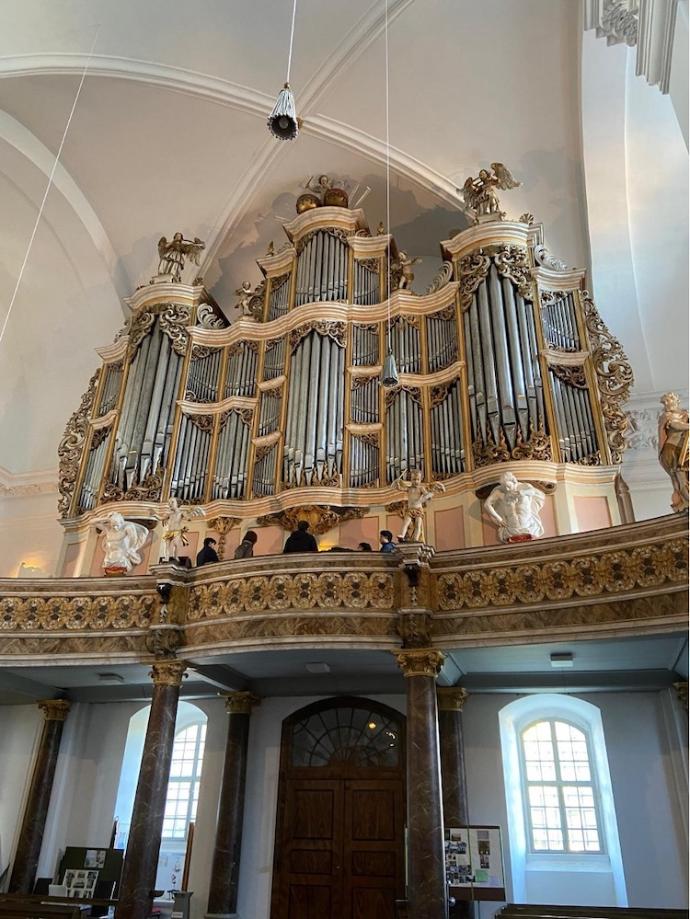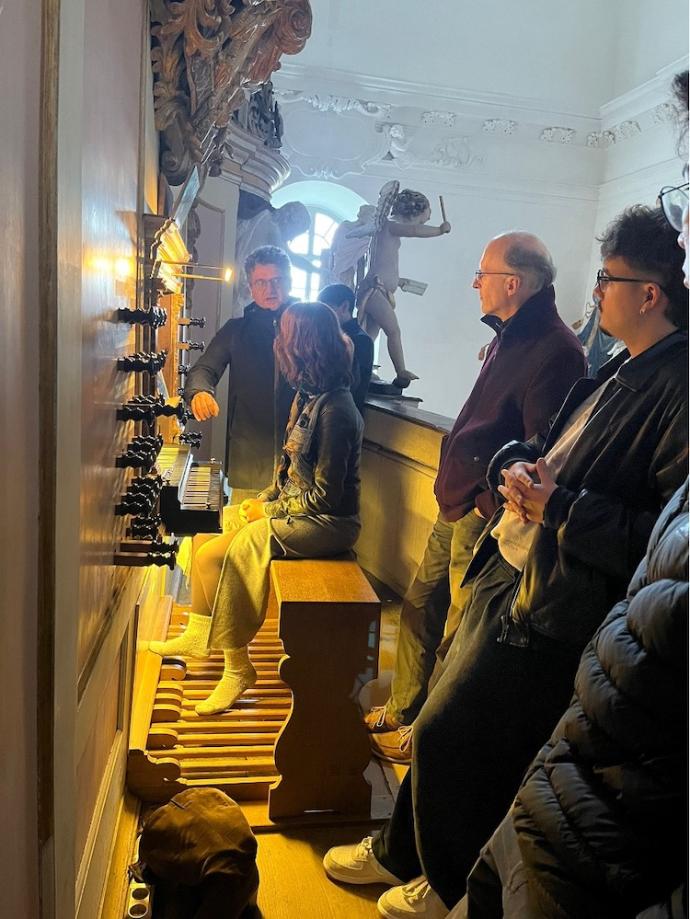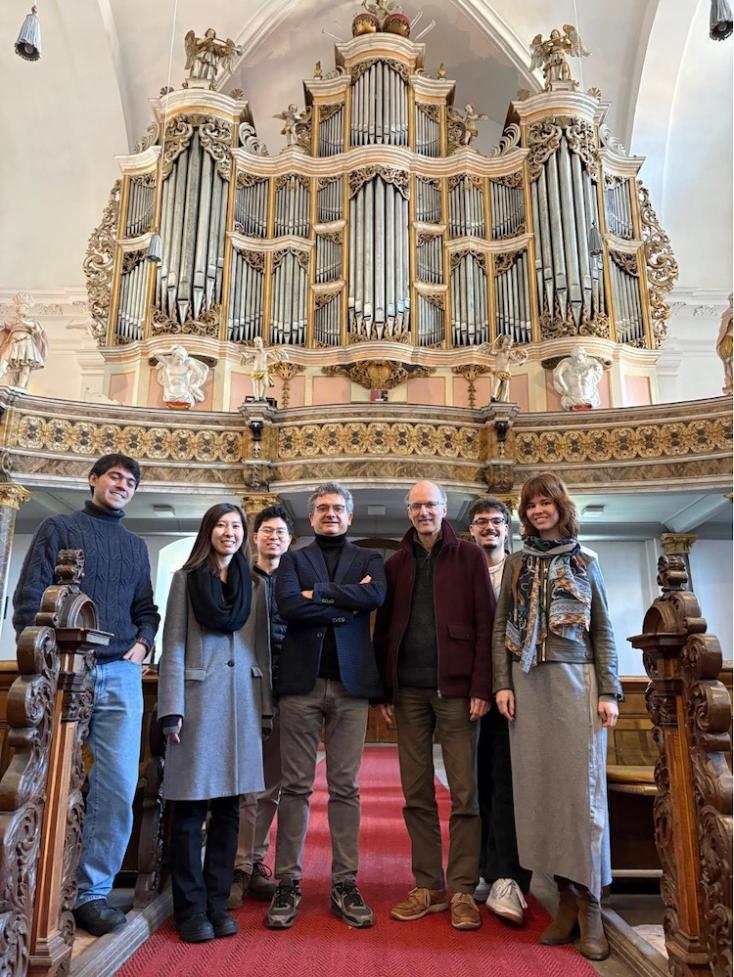We were fortunate to be involved with master classes by Professor Pieter van Dijk and Professor Maurizio Croci on the historic Treutmann 1737 organ at Stiftskirche St. Georg, Grauhof, in Germany on Friday 17 October and Saturday 18 October. There was a group of five masters organ students: three organ students from Conservatorium van Amsterdam, one from Lausanne and one from Fribourg.
We had each prepared pieces from Johann Sebastian Bach’s Clavier-Übung III, Schübler Chorales and G.F. Kauffmann’s Harmonische Seelenlust to explore the registration of Bach’s pieces from Kauffmann’s registration indications.
I had prepared a setting of Kauffmann’s Nun Freut euch, which specifies a Gedackt 8’ and Spillpfeife 4’ and it worked especially well on the flutes (Rohrflöte 8’ and Spitzflöte 4’) of the Oberwerk of the Treutmann organ. It was also helpful to hear from the professors about how a small change in tempo can change the mood of a piece very much. We were encouraged to refer to the manuscript of the Kauffmann pieces, as they had fewer inaccuracies than modern editions. This meant that we needed to be more flexible organists, reading different clefs and older notation.
My Bach piece, Kyrie, Gott Vater in Ewigkeit BWV 669 worked well with principal stops for the accompanying voices (I was advised not to use flutes, because of the counterpoint), the Trommet 8’ on Hauptwerk for the solo voice, with Principal 16’ and Octava 8’ for the pedal. I also learnt that I need to articulate each voice of the counterpoint in its own separate way, even if two voices are in one hand, so that the piece can be very expressive, with each voice having its own character.
It was also a great learning experience to listen to the other students, as I heard registrations which I had not normally thought of before, including using some 16’ stops in the manuals, for a piece such as Dies sind die heil’gen zehn Gebot BWV 678. It was also beautiful to hear Bach’s Vater unser im Himmelreich BWV 682 on this organ, with flutes, a very soft registration, but also a registration with principals is possible. The mechanical playing action of the organ was very unique, very delicate and reacted very much to my playing.
It was nice also to have some meals with the professors and students to hear about their organ experience in their countries and to enjoy the wonderful autumn scenery around the Harz region. It was a great privilege to play this famous historic organ and to receive this masterclass from the two professors.
Jonathan Lee




